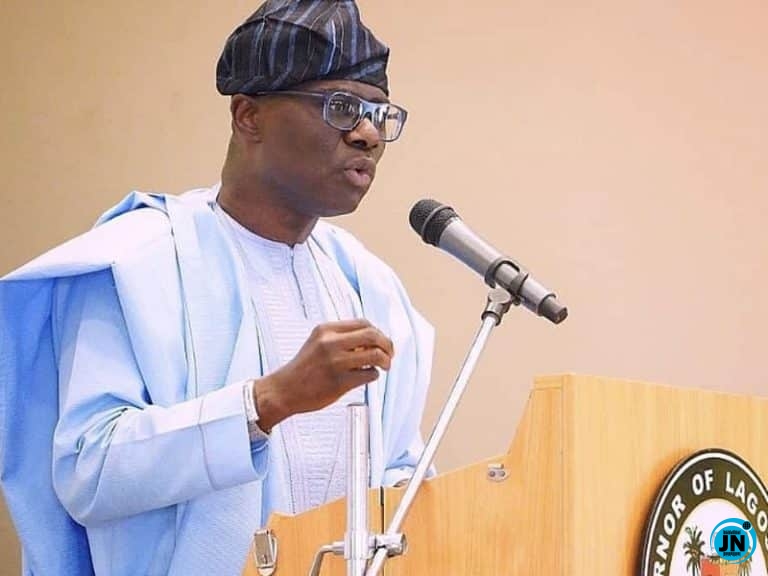The Attorney-General and Commissioner for Justice of Lagos State, Mr. Lawal Pedro, SAN, has announced that the Human Organ and Tissue Transplantation Bill has been signed into law to prevent illegal organ harvesting and ensure ethical medical practices. This significant legislative development was disclosed on Thursday during a press briefing held at the Ministry of Justice in Alausa, Ikeja, where Pedro elaborated on the importance of the new law along with four additional legislations enacted to address pressing issues in the state.
Mr. Pedro highlighted that the state governor, Babajide Sanwo-Olu, signed these laws into effect as part of his administration's dedication to the welfare, security, and prosperity of the people of Lagos State. These newly enacted laws include the Consumer Protection Law, Lagos Enforcement Training Institute Law, Victims Assistance and Witness Protection Law, and Fire and Rescue Service Law, each of which targets specific areas of public concern to promote a safer and more just environment.

In his remarks, Pedro stated, “These laws are not just milestones in the state’s legislative journey; they demonstrate our unwavering commitment to ensuring that Lagos remains a beacon of progress, justice, and opportunity in Nigeria. The legislation is a testament to our continuous effort to address the most pressing issues facing Lagosians today.”
According to Pedro, the Human Organ and Tissue Transplantation Law is particularly groundbreaking as it strictly prohibits unauthorized organ harvesting and advertisements for the sale of human organs. This law aims to protect individuals from exploitation while ensuring that medical practices adhere to the highest ethical standards. Violators of this law will face severe penalties, including up to 10 years of imprisonment or fines amounting to ₦10 million.
Pedro also shed light on the Consumer Protection Law, describing it as a significant milestone in safeguarding the rights of Lagos residents. He noted that the law empowers consumers to hold businesses accountable and enforces their rights rigorously. “This law represents a strong commitment to consumer welfare, enabling regulatory bodies to take strict action against entities that violate these provisions,” he added.
Businesses found guilty of contravening the Consumer Protection Law face serious repercussions. These include fines up to ₦5 million and the authority to seal premises selling harmful products. Additionally, first-time offenders could face six months imprisonment or a ₦500,000 fine, while repeat offenders are liable for more stringent penalties such as ₦750,000 fines and extended prison sentences.
The Attorney-General also emphasized the importance of the Victims Assistance and Witness Protection Law, stating that it provides critical support and protection to victims and witnesses of crimes. “This law ensures that individuals who come forward to assist in criminal investigations are shielded from harm, thereby strengthening our judicial process,” he explained.
Pedro further elaborated on the Lagos Enforcement Training Institute Law, which aims to enhance the capacity of law enforcement personnel through specialized training programs. “This law ensures that our enforcement agencies are well-equipped with the knowledge and skills necessary to tackle emerging challenges effectively,” Pedro noted.
In addition, the Fire and Rescue Service Law was designed to improve emergency response systems and mitigate risks associated with fire hazards. Pedro emphasized that this law prioritizes public safety by mandating stricter safety protocols and enhancing the operational capabilities of the state’s fire and rescue services.
Concluding his address, Pedro urged Lagos residents to familiarize themselves with these new laws and actively participate in ensuring their implementation. He noted that these legislations collectively aim to create a safer, healthier, and more prosperous environment for all citizens of Lagos State. “As a government, our priorities have always been to address the immediate needs of our citizens, protect their rights, and ensure their safety and prosperity,” he said.
Pedro encouraged the public to remain vigilant and report any violations of these laws to the appropriate authorities, as their enforcement is key to achieving the desired impact. “These laws have been thoughtfully designed to address critical areas of public welfare, human rights, safety, and environmental sustainability while paving the way for a more just and secure future for all residents of Lagos,” he concluded.

